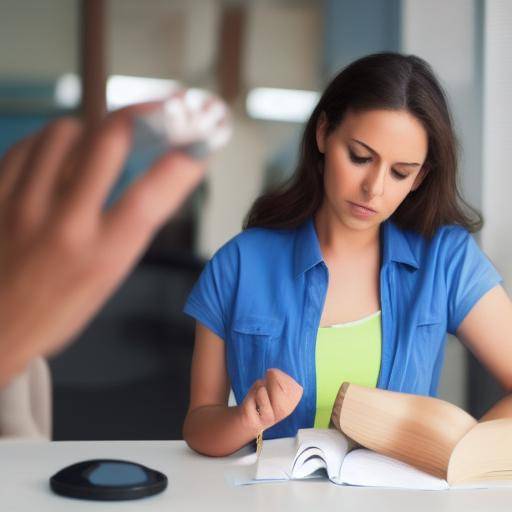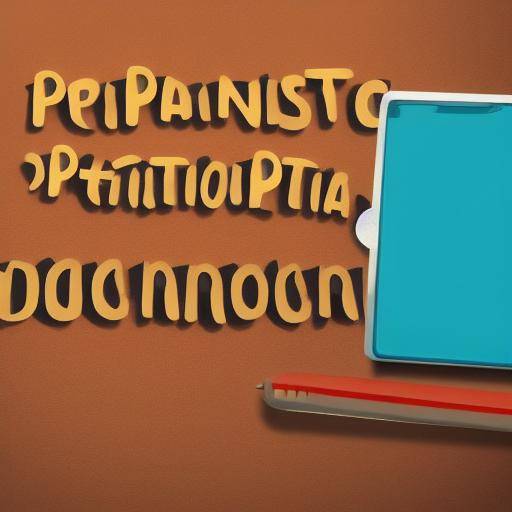
Introduction
Self-discipline and patience are two fundamental qualities in personal development. The ability to control our habits, emotions and actions, together with patience to wait and persevere, can make a difference in achieving goals and emotional well-being. In this article, we will explore in detail how to develop self-discipline to improve patience, providing valuable information, practical advice and deep reflections on this topic so relevant today.
History and background
Self-discipline and patience have deep roots in the history of humanity. From the philosophical teachings of ancient Greece to the Eastern meditative practices, the development of these qualities has been a constant process over the centuries. In the Middle Ages, self-discipline was closely linked to religious traditions, while patience was seen as a noble virtue in the pursuit of wisdom.
Advancing time, during the industrial revolution and the rise of technology, the role of self-discipline and patience has evolved to adapt to a changing world. Psychological and neuroscientific studies have broadened our understanding of how these capacities are developed and strengthened.
Deep analysis
Current research reveals that self-discipline and patience not only have a significant impact on personal development, but also play a crucial role in problem solving, decision-making and stress management. Self-discipline, in particular, is closely related to the ability to achieve long-term goals, maintaining focus and resistance to distractions and temptations. On the other hand, patience helps us to remain calm in difficult situations, to have a long-term vision and to manage interpersonal relationships more effectively.
Comprehensive review
The development of self-discipline and patience is manifested in many areas of life, from education to working life and personal relationships. Strategies to strengthen these qualities range from planning and setting goals to the cultivation of self-consciousness and time management. Having a deep understanding of how these skills interconnect can lead to a more balanced and successful life.
Practical advice and recommendations
- It sets realistic and achievable goals, dividing them into smaller steps to facilitate follow-up.
- Practice self-consciousness and emotional self-regulation through meditation, full attention or therapy.
- Learn how to handle stress and frustration through breathing techniques, regular exercise, and social support.
- Cultivate patience through the daily practice of gratitude, learning empathy and long-term display exercises.
Conclusions and FAQs
In short, the development of self-discipline to improve patience is a personal journey that requires long-term dedication, effort and commitment. By strengthening these qualities, we not only improve our individual well-being, but also have a positive impact on our environment and society at large.
Frequently asked questions
What is the difference between self-discipline and willpower?
Self-discipline is the ability to regulate our actions and behaviors in line with our long-term goals, while the will force refers to the ability to resist temptation at the present time.
How can I improve my self-discipline at work?
Establish a structured work schedule, eliminate distractions, set clear goals and practice effective time management.
Can patience be learned?
Yes, patience can be cultivated through the practice of meditation, shifting perspective towards the challenges and practice of daily gratitude.
What are the benefits of developing self-discipline and patience?
The development of self-discipline and patience relates to greater ability to achieve goals, less emotional reactivity, better decision-making and greater satisfaction in life.
How do self-discipline and patience influence interpersonal relationships?
Self-discipline helps to maintain commitments and promises, while patience helps to avoid impulsive reactions and to understand the perspectives of others, thereby improving communication and conflict resolution.
Is it possible to develop self-discipline and patience in adulthood?
Yes, brain neuroplasticity allows the development and strengthening of these qualities at any age through constant and conscious practice.
What role does self-discipline and patience play in emotional well-being?
Both qualities contribute significantly to the reduction of stress, anxiety and the improvement of emotional well-being in general.
How can I maintain long-term motivation to continue developing self-discipline and patience?
Identify your personal values and purposes, keep your focus on your long-term goals and look for the support of other people with similar goals.
Conclusion
In conclusion, the development of self-discipline and patience is a fundamental investment in oneself. By improving these qualities, we build a path to personal success, healthy relationships and a more satisfying life in general. The combination of self-discipline and patience is a powerful catalyst for personal growth and the realization of goals, and its development requires continued commitment and practice. By integrating these knowledge and practices into our daily lives, we can cultivate a more balanced and full future.
By addressing frequent questions, you have gained a greater understanding of how self-discipline and patience can be developed and their impact on various areas of life. If you are interested in continuing to explore these topics or implement these practices, we invite you to continue researching and implementing the tools provided.






















































